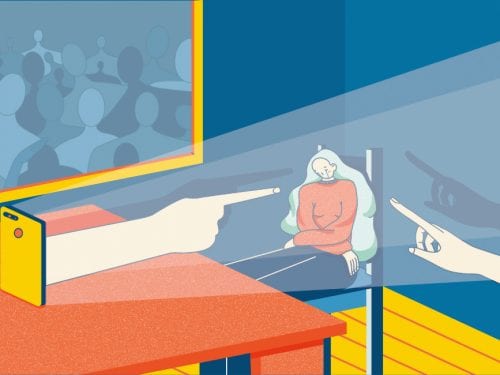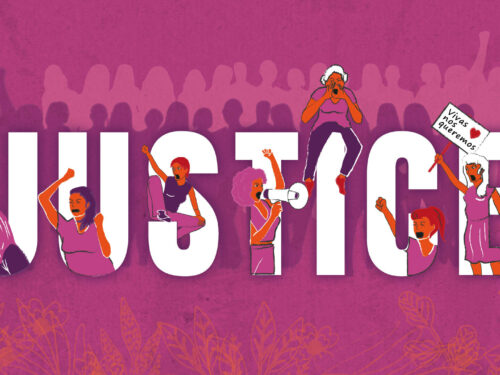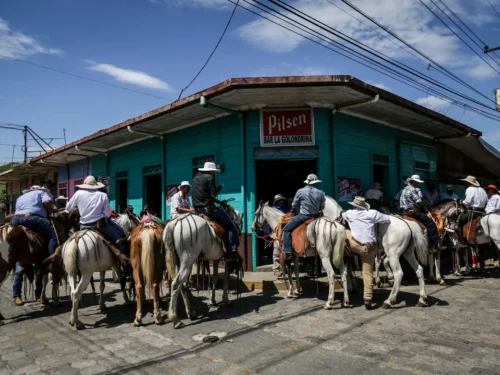
I never wrote about him, until now. I knew him in ninth grade, like everyone else at the high school, based completely on his image. In his case, it was simple: he had it all. He was nice and handsome. No one questioned his intelligence or his athletic ability. His girlfriend was nice and beautiful. He didn’t have any enemies.
There were three of them – Enrique, my brother, and him – who quickly became inseparable friends during the course of adolescence. Their perception of me was different: the best friend’s brother, the one who did not belong. No one ever said that we couldn’t be friends; I just accepted it.
One night, just like many others, they gathered at our house before going to the park on the corner. I was watching TV. Like any other adolescent, my brother left the house quickly and Enrique followed. He was the one who asked, “Are you going?” As much as I wanted to belong and take the quickest route through that obstacle course, where the goal was addictive experimentation and adult conversation guided by young minds, I knew I had to say no.
At high school, he talked to me and it was nice to have something in common: American football. It was enough. He was a St. Louis Rams fan and I am, to this day, a Denver Broncos fan. I was delighted, as he was, when the other team lost. On September 4, 2000, the Rams beat the Broncos 41 to 36; I swore that the Broncos would win the next game.
A week later, I was walking through the halls and I saw him, downcast. His girlfriend was stroking his arm in a compassionate way while the two of them leaned against a column – like a crooked painting. He greeted me and asked me for a piece of mint gum; I didn’t have any, just fruit flavored gum. Cordially, hiding a bit of frustration, he turned it down and lowered his gaze. His girlfriend forced a smile for me. I wanted to ask if he needed anything but I didn’t do it.
Weeks later, on a Tuesday, he was hanging out at his house with a few friends. He excused himself for a moment, went up to the bathroom, and a bang was heard. On October 4, 2000, my brother’s friend put the cold metal of a gun between his lips and pulled the trigger. He was sixteen years old.
In the early hours of that Wednesday, I heard my parents speaking with a different tone; it was new for me. I chalked it up to tiredness and covered myself in the sheets; I didn’t see my mother, a linguist, fighting for words, nor my father, preparing to make his child, my brother, cry. When I left the room and my mom told me, I remember shaking beneath the boiling water of the shower.
The following days were dark. Words of support hid desperation and confusion. Everybody struggled to make us understand that they would be there to support us; we knew that. But no one knew how to answer the questions. I saw my surroundings, put up my defenses and carried on like a soldier at war: he was my brother’s friend, not mine.
A month later I saw Enrique’s brother, just before he got on the bus to go home. It was a short and very rewarding conversation, so much so that I had decided to speak with Enrique the moment I could. I knew that the right moment was hard to find and waited until gym class, when they put us in pairs.
“How have you been, Quique? I saw your brother.”
“If he told you I woke up crying, he’s lying.” He threw the ball hard and we kept up the exercise. I babbled some answer and we switched subjects: asking, speaking, and writing were not allowed. To this day, I haven’t told him what I talked with his brother about. I just decided to look for the reasons behind all of this.
He was one of 22 adolescent suicides in Costa Rica during 2000, 90% of which were men. The statistics indicate that the substantial majority are due to the male incapacity to accept and express their emotions. In 2006, 43 people under the age of 18 committed suicide and a category for children under ten years old had to be opened. These numbers don’t take into account attempts, which could range between 10 and 20 per suicide, of which women make up the majority.
Enrique couldn’t admit that he cried for his friend, like many adolescents. Rather, our escape mechanisms range from the silence of our room and writing to vice and partying. Lowering our defenses was unacceptable. Ironically, we felt pressure to show that we could converse, express ourselves and be well. That only sped up the confusion of being a teenager, so we put a bandage on the wound and kept moving forward. But the thought was there, like rust beneath paint.
We felt pressure to be “successful,” “happy,” “prepared,” “strong” and other little-understood standards that did not allow us to enjoy that age of learning that was adolescence – making it a catapult between an interrupted childhood and an immature, dislocated adulthood. For that reason, I sometimes want to travel through time, with mint gum, sit beside him and ask, “Are you okay?” Maybe I could bring him to the future so he could see that life is not a race. But with him I can’t do that now.
Then, on September 8, 2002, I watched the Broncos defeat the Rams in a game that ended 26 to 23. I didn’t celebrate; as we lose battles, we win battles. Perhaps I smiled a bit, for him. I never wrote about him, until now.
Bernardo Montes de Oca is an engineer with a passion for writing. He wanted to share his experience after the suicide of a friend during his adolescence, with the hope of helping others who have gone through similar situations.







Comments